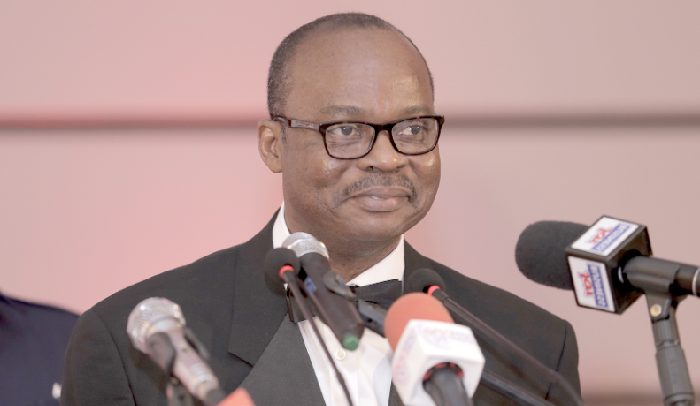Dr Ernest Yedu Addison, Governor of Bank of Ghana (BoG)
Ghana has now achieved its objective of establishing an integrated and interoperable payments ecosystem.
All the three key national payment circuits, namely mobile money, e-Zwich and gh-Link, are now interoperable, enabling seamless movement of funds across these systems, Dr Ernest Yedu Addison, Governor of the Bank of Ghana (BoG), stated recently in Accra.
Speaking at the launch of the phase 2 of the mobile money interoperability, he said total transaction value and volume had increased from GH¢8.3 million and 96,907 respectively in May 2018 to GH¢32.6 million and 319,094 respectively in September 2018, representing 292.8 percent and 229.3 percent growth in value and volume respectively.
“This growth trend is expected to increase further when the second phase becomes fully operational and other innovative products and services become available.”
He also said as his outfit developed the digital financial ecosystem, the integrity of the service delivery channels was paramount and required transmission channels for electronic payments to guarantee security of transactions.
“This can be achieved through adherence to five international best practices and standards in the acquisition, deployment and management of channels. Consequently, the Bank of Ghana has drafted guidelines on Operations of Electronic Payment Channels which will provide a framework for management of an efficient and secure transmission of electronic transactions across various payment channels.”
At the Annual Global Policy Forum of the Alliance for Financial Inclusion (AFI) held in September 2018 in Sochi, Russia, Ghana won three of the eight awards, including the technology award in recognition of the interoperability project.
Dr Addison revealed that with the implementation of the second phase of the interoperability infrastructure, payment service providers would have the opportunity to scale up access to financial services through digital channels, adding that currently, most of the digital financial products available in the Ghanaian ecosystem were in the category of savings, payments, investments and insurance making credit products receive less attention, thereby limiting the capacity of the unbanked and underserved to borrow for economic activities.
He added that the Central Bank was working with Financial Sector Deepening (FSD) Africa to implement a credit market diagnostic project.
“The project will assist in identifying constraints to credit delivery and propose measures to overcome them. This will complement efforts towards expanding the scope of financial access to both the banked and unbanked in society.”
The BoG Governor challenged Fintechs to work closely with banks, non-bank financial institutions and especially rural and community banks to come out with several other products and services that would further bring banking and financial transactions closer to the public.
“I see endless opportunities with this financial inclusion triangle, and I hope the players also realise the enormity of opportunities it presents.”
By Samuel Boadi


